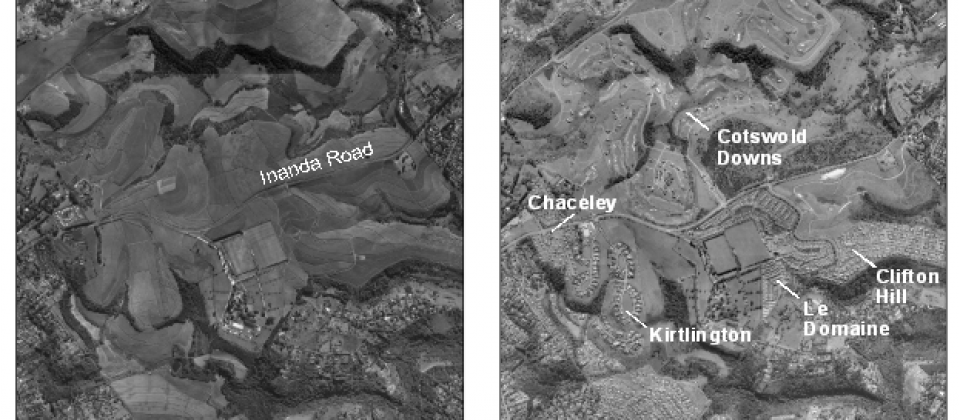Richard Ballard, Gauteng City-Region Observatory, University of the Witwatersrand and University of Johannesburg
While many cities around the world exemplify inequality, the apartheid city took state led spatial planning to unprecedented levels. This programme was scrapped more than two decades ago: influx control, which attempted to restrict urbanisation, was officially scrapped in 1986, and the Group Areas Act, which segregated cities, was scrapped in 1991. Since then some former ‘white areas’ have become desegregated as a result of the upward mobility of some previously excluded groups. Urban reshaping has also occurred through the occupation of land by shack dwellers and, over time, the provision of low cost housing by the state. Meanwhile there has been some degree of enclaving by elites into gated communities often on the periphery of former white sections of cities. Although townships designed for black people have seen some investment and growing middle class sections, high rates of unemployment result in ongoing deprivation most visible in informal structures and sections. Within this milieu, I have conducted research on white people’s responses to urban desegregation, public discourse on the black middle class, gated communities, social movements which contest processes of deprivation, and the formal political arrangements of local government.
Contact: richard.ballard@gcro.ac.za – Website


Leave a Reply